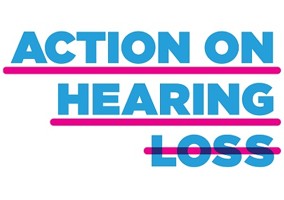Andrew Purkis says that some of the challenges facing social care cannot be solved with a new approach to volunteering.
Sir Stuart Etherington, NCVO's veteran chief executive, has sent a new year letter to NCVO's members and the wider sector. I have been trying to think why it leaves a mixed taste in the mouth.
The main theme is that the voluntary sector and wider society should value volunteers more highly and be bold and ambitious for the contribution volunteers should make to future delivery of the services people need.
There are times when he describes volunteers as complementary to state workers, adding their own value, but the main thrust is that we should get real about the limitations of the state. We cannot for ever be waiting for more public expenditure to fill the gaps: it's time for a rethink.
Volunteers are not the whole answer, he says, but are an important part of it, especially in health and social care. "With a government preoccupied by Brexit", he writes, "it is up to us to find the answers to the problems we face" (rather a tall order when you think of the nature of the problems).
He continues: "We need a far greater focus on supporting and enabling communities and neighbours to look after each other, rather than waiting or hoping for a public service to do it".
And most strikingly bullish: "I don't believe in putting limits on what volunteers can do, especially not based on ideological arguments about the role of the state."
‘Unhappy with the message’
I have long admired the strength of Sir Stuart's intellect, his sophisticated judgement and political nous.
We can be sure that he has thought very carefully indeed about the positioning of NCVO and the most promising areas for advancement of the voluntary sector contribution at this time, drawing on the insider relationships that he is so good at building within the government and wider influential circles.
It is an unwelcome surprise to me, who usually agrees with Sir Stuart on nearly everything, to find that I am unhappy with this message, even if its purpose is to stimulate a debate.
The first possible disappointment is that there is nothing in Sir Stuart's new year letter about major issues of great concern to many in the voluntary sector: nothing on growing inequality, on women's rights and opportunities, on global warming, migration and refugees, homelessness or most other issues outside the purview of NCVO's predecessor, the National Council for Social Service.
Fair enough, perhaps, he cannot cover all big issues in one letter? But is it defensible to get through a whole message on upgrading volunteering as part of the solution to social care without mentioning the race to the bottom in wages, zero hours contracts and working conditions - which might even be one of the next big scandals affecting the charity sector itelf?
Are issues about low pay, society's very low valuation of caring roles, and the burden on women of unpaid care, really not worth a mention?
‘Deliberate focus on problem solving’
Secondly, Sir Stuart is in other contexts a redoubtable champion of campaigning, and he makes welcome points early in his new year message about how the sector must be the voice of those who cannot manage at all, as well as the ‘just about managing’ people prioritised by Theresa May.
But taken as a whole, his message about volunteering here seems deliberately focused on practical action and problem solving, as an alternative to unrealistic hopes of relying on state action for which we might be campaigning.
This plays into a restrictive (and politically loaded?) definition of volunteering as something different from campaigning, advocacy and influencing.
Thirdly, look how Sir Stuart frames his discussion of social care problems: "Social care is consuming an ever greater proportion of local government spending. The trajectory appears unsustainable".
Tactfully, there is no mention of the savage cuts that have been imposed on local authority budgets. Perhaps, a voice cries, it is the degree of austerity in those budgets that is unsustainable?
Nature of the social care crisis
That brings us to the nature of the health and social care crisis. Naturally, a wide definition of social care includes all levels of need requiring prevention or response, and I totally agree that there are abundant ways in which volunteers could do more to address many of them.
But this is where some distinctions are needed. Already, local authorities have had to whittle away many services for less dependent people. Most adult local authority services are now focused on highly dependent people, and this is the end of the spectrum where things have gone most grossly critical.
The core of the social and health care crisis is in large measure about people who, for example, cannot get themselves out of bed, or on and off the loo, or who are suffering from dementia and mental health problems. Such people, time and again, are not getting the care they need with a modicum of dignity. If they are in hospital, they often cannot go home because the local services cannot cope with them, causing bed blockages in the NHS.
If they are lucky enough to have access to services allowing them to go home or stay at home, they may need to include regular visits from trained carers for toiletting, washing, and dressing, professional assessment of their requirements, provision of physiotherapy and of the right aids for daily living like chair lifts, frames, new rails and the like, and sometimes sustained nursing care plus the right pads and means to avoid bed sores.
Charities should not replace the state
Families above all, but also volunteers and neighbours, may have a highly valuable role within such a framework, but not instead of that framework.
The core of this problem is not uncreative thinking about volunteering, it is a failure of collective arrangements that we make as a society.
Many of its manifestations are indeed far beyond the contribution that can fairly be expected of volunteers and neighbours. I believe in recognising the limits.
Overplaying their role is itself an ideological position about the role of the state - with bleak implications for many vulnerable people.
The number of very frail elderly people continues to grow.
As with children attending school, predict and provide is not an optional extra, it is a social and political responsibility. That being so, there is something not quite right about bigging up the claims of practical volunteering on the back of a social care crisis that requires political determination and action.
The trouble is that, as David Cameron found with the big society, if you start a debate at the wrong time and in the wrong way it can go off the rails. As Sir Stuart comments: "Perhaps it was always too ambitious to embark on this journey [Cameron's Big Society] at a time of spending constraint".
The same may be true of his own bullish demarche against the background of an unfolding, shaming crisis in health and social care for some of our most dependant fellow citizens.
Related articles












